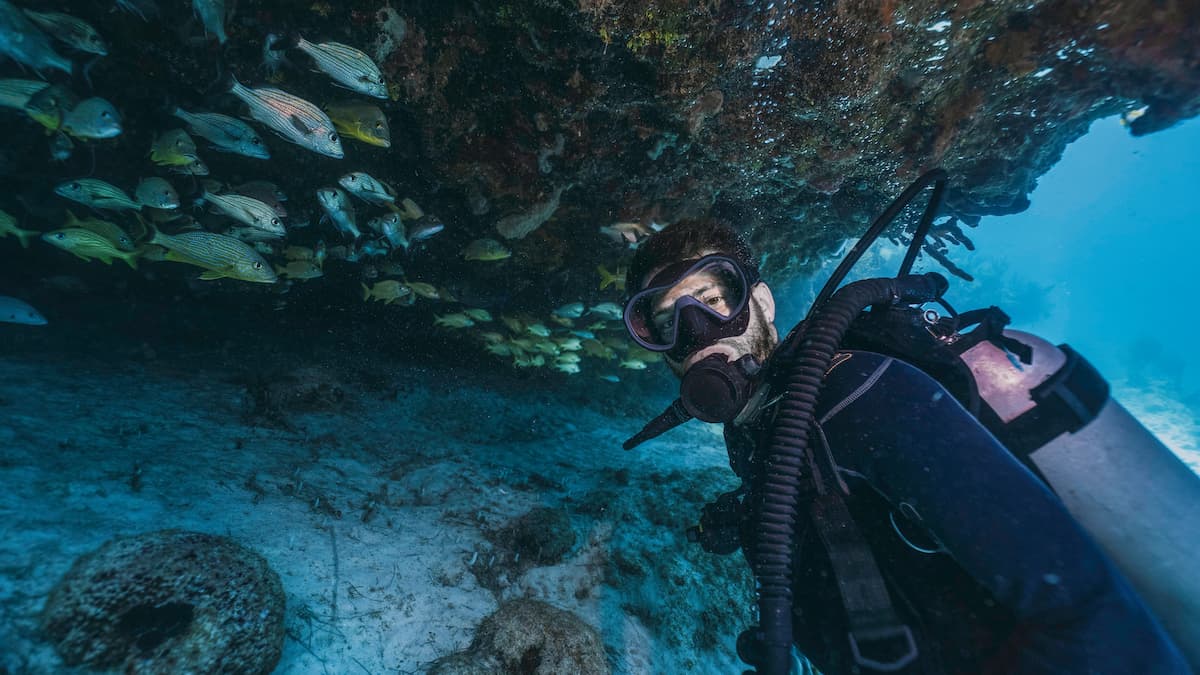Have you ever thought about how many incredible creatures hide beneath the surface of the sea? I’m talking about those species that don’t end up on our TV screens or on the posters in biology classrooms. Yes, whales and corals are amazing, but the sea has much more to offer.
Imagine creatures that seem to come straight out of a science fiction movie, inhabitants of the abyss that defy every notion of “normal.” These creatures not only exist but thrive in conditions that would seem impossible to us land-dwellers.
Adaptations to Life in the Abyss
But how do these creatures live in such extreme conditions? The answer lies in their incredible ability to adapt. Take, for example, deep-sea fish, which have developed large, sensitive eyes to capture the slightest available light, or their ability to produce their own light through bioluminescence.
This is not just a light show under the sea; it’s a survival strategy, used to attract prey or find mates in the total darkness of the abyss.
ALSO READ: Snorkeling In Playa Del Carmen: An Underwater Adventure In The Riviera Maya
The Importance of Conservation
And here we come to a crucial point: why should we care about these creatures and their exotic habitats? Well, the answer is simple. The conservation of marine wildlife is essential for the health of our planet.
The oceans regulate the climate, provide food, and host biodiversity that is crucial for our global ecosystem. Yet, activities like overfishing, pollution, and climate change are putting these fragile ecosystems at risk. Protecting marine creatures means protecting our future.
How to Protect Wildlife While Diving?
Pluto Dive adopts a philosophy of respect and conservation towards the wonderful marine wildlife that its clients have the privilege to explore during dives. The company actively commits to protecting marine habitats by encouraging responsible diving practices.
Pluto Dive’s instructors educate divers on the importance of not touching or disturbing marine life and maintaining a safe distance from animals to observe them without interfering with their natural environment. The goal is twofold: to offer an unforgettable experience to divers and at the same time contribute to the health and resilience of underwater ecosystems.
ALSO READ: Explore The Benefits Of Diving: An Underwater World Of Health And Adventure
Challenges of Ocean Exploration
Finally, we must consider the challenges that lie ahead in exploring the oceans. Despite huge technological advances, much of the oceans remain unexplored and mysterious.
Future explorations will have to overcome significant obstacles, such as developing technologies capable of withstanding abyssal pressures and finding funds to finance these adventures. But every new discovery brings us a little closer to understanding this vast underwater world, inspiring a new generation of explorers and conservationists.
So, the next time you look at the sea, remember that beneath that glittering surface hides a world of wonders, a complex ecosystem that deserves our admiration and protection. The marine wildlife is not just a matter of scientific curiosity; it’s a vital part of our world that we need to learn to know and respect.



